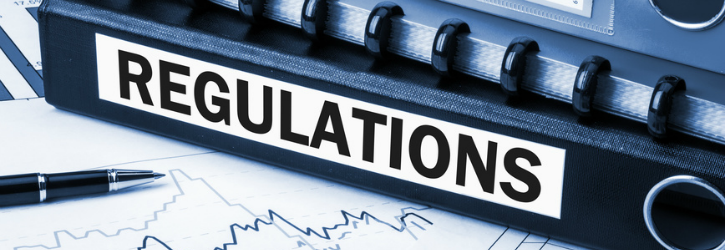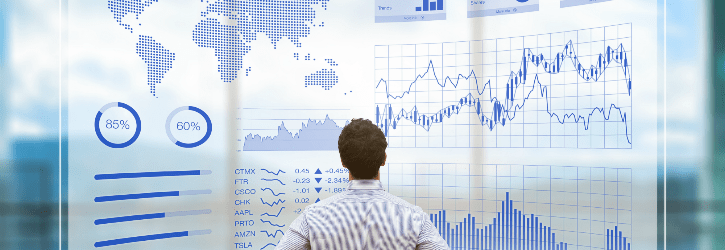
Welcome To The Data Leak Lawyers Blog
We focus on the latest news surrounding data breaches, leaks and hacks plus daily internet security articles.

We focus on the latest news surrounding data breaches, leaks and hacks plus daily internet security articles.

It’s understood that more arrests have been made in relation to the University of South Wales data incident that hit the news a few weeks ago.
There’s limited information about what exactly has happened, other than that an arrest had previously been made as part of ongoing investigations. This month, it’s understood that the police have made two further arrests in connection with the data breach.
Data protection in the education sector is incredibly important. Universities hold a wealth of personal and sensitive information about a large volume of people. It can include medical data and domestic information which is often required as part of meeting students’ individual needs.

The consequences of an NHS confidentiality breach can be severe, which is why claims for medical data breach compensation must always be taken seriously.
A large volume of the individual claims we take forward are NHS data breach compensation claims. They can be common because of the volume of data that our national health service is responsible for processing and storing. On top of that, any data breach or leak involving medical data is generally severe given that it’s personal and sensitive information.
Data breach compensation amounts for these kinds of cases can be typically high. But what amounts to a legal case, and can we help you?

You can qualify to make a claim for data breach compensation for credit score errors, and we may be able to represent you on a No Win, No Fee basis.
Any error on your credit file could lead to your credit score being adversely affected. It can also lead to you being refused finance, with one of the most problematic examples being a mortgage. Many lenders – especially those who offer good rates – do so on the basis of a clean credit history, so when an error appears, serious problems can occur.
If your credit file has an error on it, this can be classed as the misuse of your personal information. As such, it can amount to a data breach and you can qualify for a compensation claim with us.

With this week’s news focused on big GDPR fines for British Airways and Marriott, we can only assume that more fines are on the way.
Our lawyers are fighting for justice in over 25 different data breach group and multi-party actions. That shows just how many big legal cases we’ve taken forward, and some of the incidents took place after GDPR was introduced last year. The BA Group Action is one of those, and the initial fine of £183m shows just how serious the Information Commissioner’s Office (ICO) is on punishing offenders.
With the likes of the Ticketmaster data breach and the Well Pharmacy incidents yet to involve penalties, we expect more big fines to be on the horizon.

The BA data breach fine is set to be a record £183m; the first major fine of its kind in the UK since the new GDPR rules came into force last year.
The Information Commissioner’s Office (ICO) has referenced poor security that led to the information for hundreds of thousands of people to be comprised. We’re acting on behalf of a number of victims of the breach, and news of the fine has led to an influx of new inquiries.
There’s still time to join the British Airways data breach compensation action. We’re fighting for justice for victims on a No Win, No Fee basis as part of the pending group action for damages.

With the potential for deadlines for joining the pending BA group action for compensation arising from the 2018 data breach coming soon, here’s what you need to know.
If you were affected by one or both of the 2018 data breaches, you may qualify to make a claim for compensation. If you have received confirmation that you were affected, that should be enough for you to join our group. For more information about the breach, please see our information page here.
We have been representing claimants since news of the breaches hit the headlines last year, and our advice is to sign-up for a case as soon as you can. Here’s a quick guide for you.

Information sharing without consent or proper and informed consent can amount to a breach of important data protection laws like GDPR, and it may allow a victim to make a claim for compensation.
Information is being shared all the time, and some organisations are still hiding behind their privacy policies and terms and conditions which don’t always make matters too clear. One of the biggest problems is information being shared for marketing purposes, and people then being hounded by aggressive sales tactics. When it comes to confidential and sensitive data like medical information, we don’t want it shared for obvious reasons.
If your information has been shared without your consent, what can you do about it?

The act of unlawfully accessing personal data can land the offender in a lot of trouble, and it can pave the way for the victims to make a claim for data breach compensation.
Your rights are enshrined in law, and if your rights to information privacy are ever breached, you can be entitled to take legal action. In today’s digital age where information access and sharing are achievable at the click of a button, there’s a wealth of data for millions of people that can be accessed by many individuals.
But people can only access and process information where they’re authorised to do so and have a legitimate reason to do so. Any access of personal data that isn’t done so in accordance with important data legislation can be unlawful. We can represent victims who wish to take a case forward on a No Win, No Fee basis.

There has reportedly been an increase in South Gloucestershire Council data breach incidents when compared with previous statistics.
It’s understood that there were 184 security breaches last year, which was an increase of 46% from the previous year. Although this sounds like worrying news, the authority has reportedly confirmed that the increase is due to a greater awareness for reporting. With the introduction of GDPR last year, there have been huge increases in breaches being reported as knowledge of data laws and responsibilities has grown exponentially.
That being said, data breaches remain a serious problem, and when it comes to council data breach cases, the impact for the victims can be severe.

If you’ve yet to start your claim for Bounty data breach compensation, make sure you take a look at this important advice about your rights.
The parenting advice website was fined by the Information Commissioner’s Office (ICO) in the wake of substantial data protection failures. The information for millions of people was illegally shared, and the fallout has been substantial.
In fact, just last week, East & North Herts NHS Trust announced that there will be no more ‘Bounty Ladies’ on the maternity wards of Lister Hospital. This is on top of the £400,000.00 fine and the compensation claims being taken forward against them.
EasyJet admits data of nine million hacked
British Airways data breach: How to claim up to £6,000 compensation
Are you owed £5,000 for the Virgin Media data breach?
Virgin Media faces £4.5 BILLION in compensation payouts
BA customers given final deadline to claim compensation for data breach
Shoppers slam Morrisons after loyalty points stolen
Half a million customers can sue BA over huge data breach
Lawyers accuse BA of 'swerving responsibility' for data breach
The biggest data breaches of 2020
Fill out our quick call back form below and we'll contact you when you're ready to talk to us.